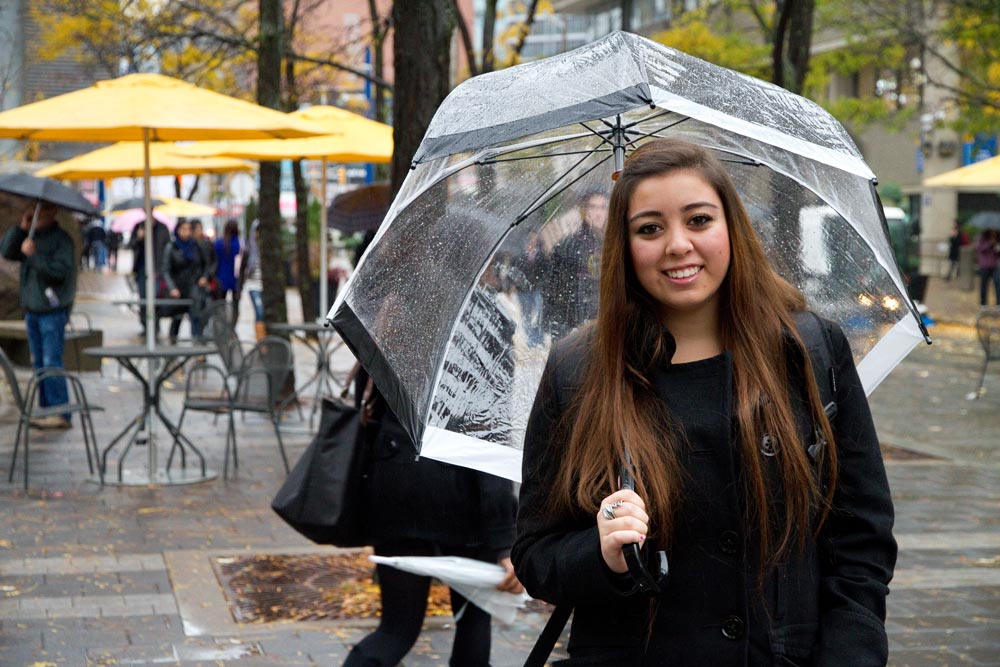Many students defer their studies for a year. David Owen finds out why they do it, and how they spend their time out of school
While their peers packed their bags and found their classes at the start of school, Adelaide Andrews boarded a plane to San Diego, Jessica Beuker punched in for a shift at her parttime job, and Monica Neumann settled back into her parents’ house in Waterloo.
It was all to contemplate their program choice, and ultimately gave them a reality check as to what not being in school is like.
However, these three students have not abandoned their undergraduate degrees altogether. They all deferred their programs for a year to pursue paths outside the boundaries of campus.
The burden of student loans rests on the shoulders of many university students, and when considering the average tuition at Ryerson is almost $7,000, it is no wonder why.
The inevitable financial debt is what made Andrews, a second-year radio and television arts (RTA) student, reassess her feelings towards the program.
“While looking at the thousands of dollars I owed, I asked myself ‘is the debt worth the program?'” she said. “I decided I needed some more time to decide because I always felt as though I had been rushed into figuring out what I wanted to do.”
Andrews is volunteering at a hostel called Lucky D’s in San Diego for a month of her time away from school.
Although she said this has opened her mind to new people, places and experiences, the desire to take a break from school and come back as a changed person may not be realistic.
“People think taking time off school to travel will deliver some kind of epiphany on life, and it really doesn’t work like that,” Andrews said.
Students can defer their studies for either one or two semesters and then return easily; however, after a year away from Ryerson, the re-enrollment process is more extensive.
“Once you’ve been gone longer than a year, you have to be formally reinstated,” said Donna Buczkowski, Student Affairs Coordinator for RTA. “The students who really want to be here will go through the effort.”
She attributes the majority of deferrals to the cost of receiving an education and family crises at home.
For both, Buczkowski is able to offer options such as bursary and scholarship opportunities to assist with finances as well as online class programs for those who need to move back home.
As an RTA graduate who deferred her studies for a year, Buczkowski said the first suggestion she would give a student thinking of taking a year off is to make an appointment with an academic advisor.
“Speak to someone who knows what your choices are. Sometimes this decision is made in a stressful time and we want to avoid hasty deferrals,” she said.
Neumann, an image arts student, deferred her studies in 2011 after she completed her first year of classes.
Her dad passed away in her first term of school. She moved back home to Waterloo with her family.
“I was in a different state of mind after what happened to my dad. I just didn’t care,” she said. Putting school on hold allowed her to contemplate her options, and now Neumann is back at Ryerson this year to start her second year of photography.
“This year is different. It’s fun and I enjoy it a lot,” she said.
Beuker made the decision to defer after her second year in the journalism program. Her bills increased over the summer, and she realized that she would need to secure an income before going back to school.
“This semester has been a reality check,” said Beuker, who works 20 hours per week at a local Second Cup.
Her time away from Ryerson has provided perspective on her program. “Once I’m back in school I’m going to have to work even harder to catch up. So many students take their spot in university for granted.” she said.












Leave a Reply